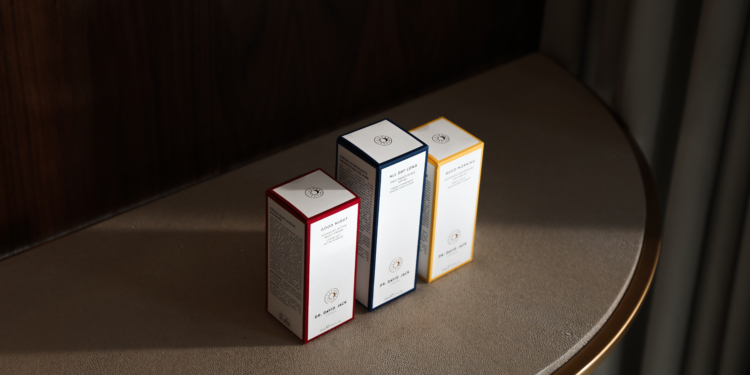Dr. David Jack shares his skincare tips on achieving radiant wedding day skin.
What are the top skincare treatments brides should consider ahead of their wedding?
Brides looking ahead to their wedding day are generally concerned about how their skin looks and feels on the day (for photographs). Generally speaking, brides nowadays prefer less makeup than before so optimising the health of their skin is key for minimising this. Patients usually come about a year or so before their weddings to plan treatments, and in my clinic we offer a consultation service to help make a bespoke plan for you. There are many treatments to consider so I would usually recommend this as everyone’s skin will have slightly different requirements. We would usually start with an assessment of the skin to create a custom plan of facials and skin boosting treatments, which should be started around 8-9 months pre wedding. It is always good to ‘test run’ treatments such as botox, if you’ve never done these before – I’d suggest around 6 months prior (at the very least), so if you like it, you can repeat it about 1-2 months before the big day so it’s looking ideal on the day (particularly if you might need any tweaks to it). Fillers last a good bit longer (up to 18 months with more advanced hyaluronic acid fillers), so these can be done at any stage – but should be given at least a month or so to settle, prior to the wedding.
There are various other treatments which have become popular in recent years for brides, but none have received the same level of attention as Profhilo, an injectable hyaluronic acid treatment that works as both a collagen stimulator and an injectable moisturiser. Instead of adding volume like a filler, Profhilo is injected superficially in the skin and it spreads evenly to deeply hydrate and improve skin elasticity. It can be used on the face, neck and there is even ‘Profhilo Body’ which can be used anywhere on the body. This treatment is especially beneficial for brides wanting firmer, smoother skin. Two sessions spaced four weeks apart are typically recommended, with results peaking about eight weeks after the final treatment.
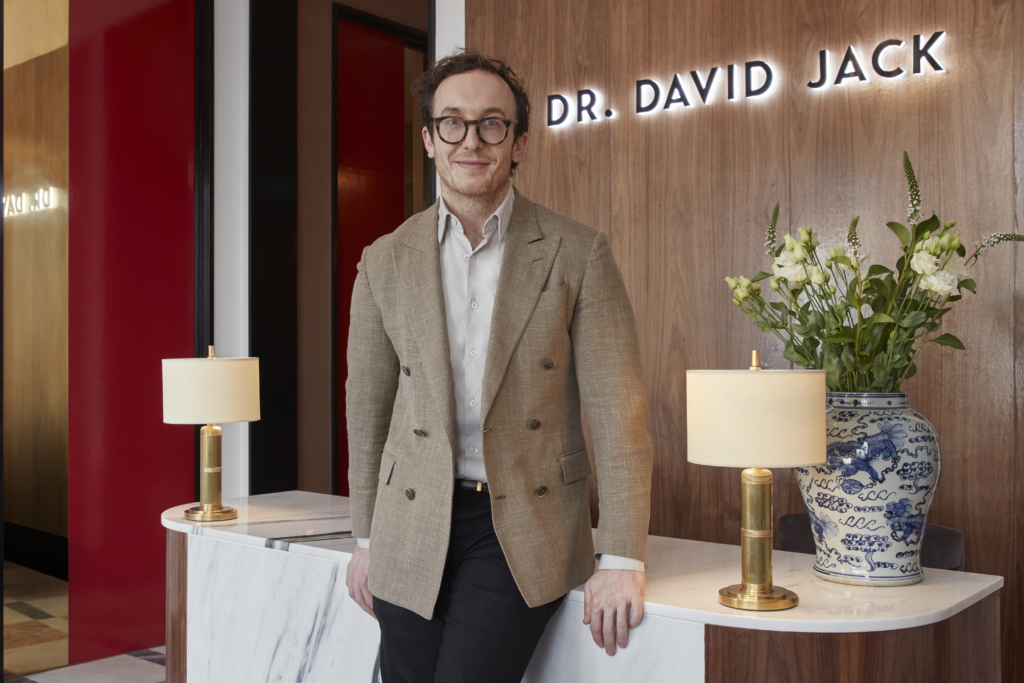
For those dealing with hyperpigmentation (including sun damage), redness or rosacea, which can often flare during stressful times (often the case during wedding planning!), Intense Pulsed Light (IPL) or Broad Band Light (BBL) treatments can be useful tool. IPL and BBL uses broad-spectrum high energy light to target and break down pigmentation or vascular lesions. It typically requires multiple sessions spaced three to four weeks apart, so it’s important for brides to start this treatment six to nine months in advance.
Another key option we increasingly see brides opt for is Morpheus8 with exosomes. This combination treatment is best done at least 6-9 months pre wedding as a course of 2-3 sessions. This treatment is excellent for skin resurfacing and tightening. It works using microneedles with radiofrequency energy – which creates tiny injuries on the skin and heats underneath the surface to stimulate a process of dermal restructuring and tightening, this process is boosted by the addition of exosomes, which are derived from stem cells. This can help lift areas like the jawline and midface, and improve skin texture. Over time it can also help improve fine lines and wrinkles. The best results appear at least 6 months after the first treatments so this is something to plan well in advance.
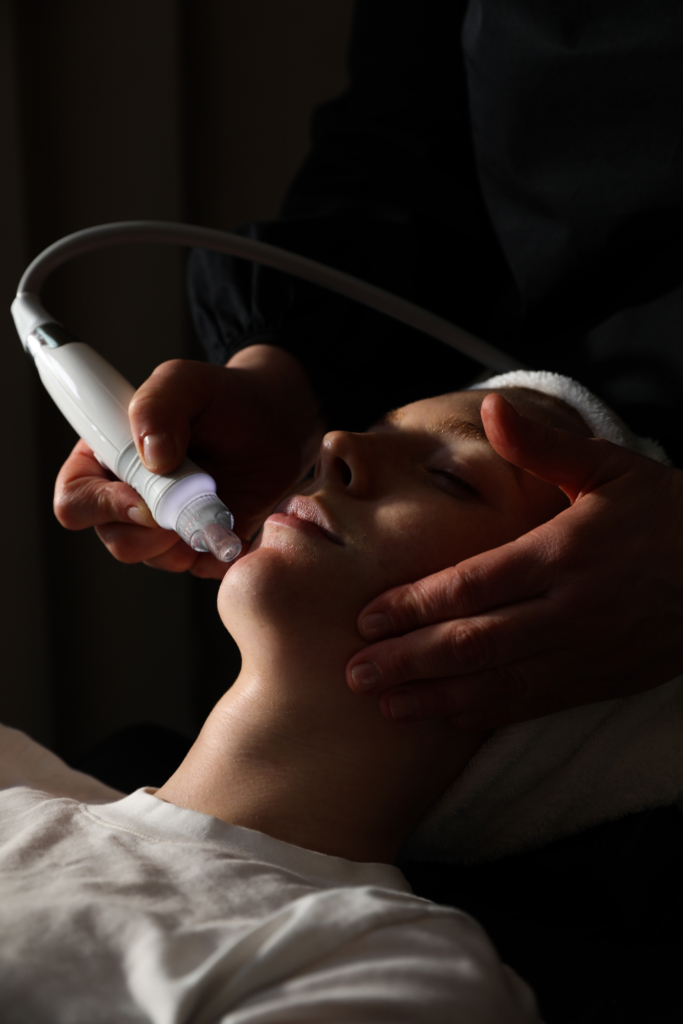
How far in advance should a bride begin a skincare regime to achieve glowing skin for the big day?
To achieve optimal results, brides should begin a structured skincare regime nine to twelve months before their wedding. This timeframe allows for treatments that require multiple sessions and downtime, such as Morpheus8, Profhilo, and treatments that you may want to give time to settle or to ‘test run’ such as injectables. Most of these treatments, especially those addressing deeper skin concerns like pigmentation or skin laxity, need several months to show full results, as the skin needs time to heal, regenerate, and build collagen.
By starting early, underlying skin conditions like acne, hyperpigmentation, or even uneven skin texture can be addressed, whilst leaving room for minor adjustments if necessary. For instance, a bride starting 12 months in advance could complete a full course of peels or laser treatments, followed by maintenance treatments closer to the wedding date.
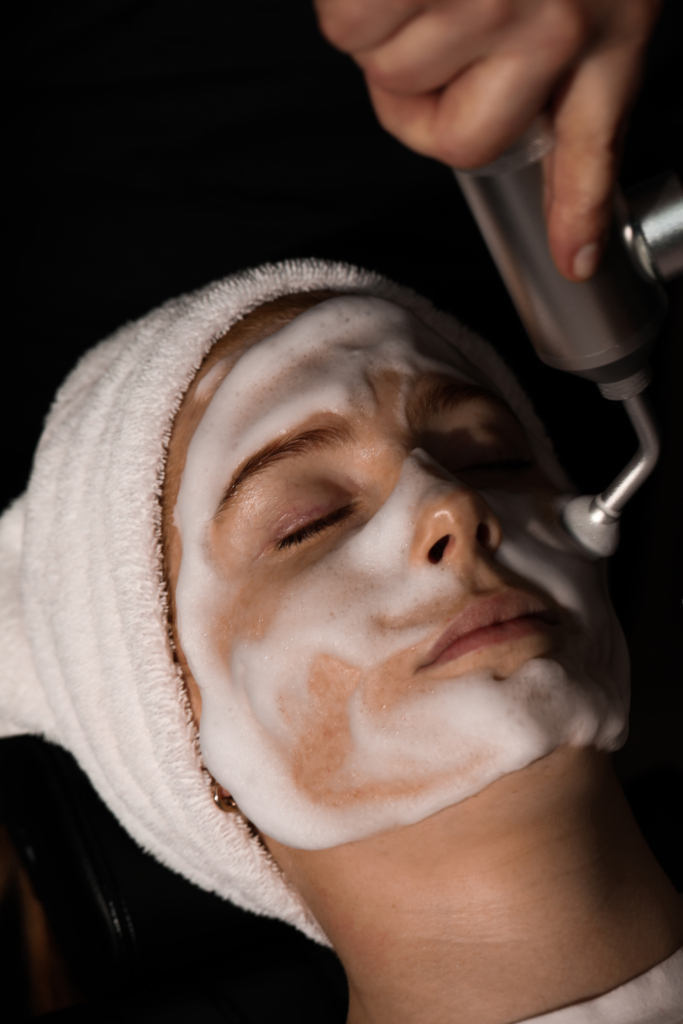
Are there any quick-fix treatments for brides who are short on time?
There are still effective last-minute treatments that can deliver noticeable improvements with minimal downtime. One option is the Mesotite facial, which combines a non-ablative skin tightening radiofrequency treatment with mesotherapy to both lift the lower face and neck, as well as deeply hydrating and brightening the skin. Results are visible within a day or so and can last several weeks so is ideal pre wedding.
Another potential option for a quick fix is dermaplaning, which we do as part of our award-winning Egyptian facial. Not only does this improve the surface texture of the skin itself, but it also reduces the fine vellus hairs on the face, to help makeup sit better. This treatment involves a combination of a light blended chemical peel (bespoke to the individual patient), with dermaplaning and a post procedure vitamin treatment with vitamin C, retinoids and hyaluronic acid.
Other popular facial treatments pre-wedding include forma Radiofrequency (which tightens and lifts the skin of the lower face). This is recommended over 6 weekly treatments to start 7 weeks before the wedding so that the last treatment is a week before.
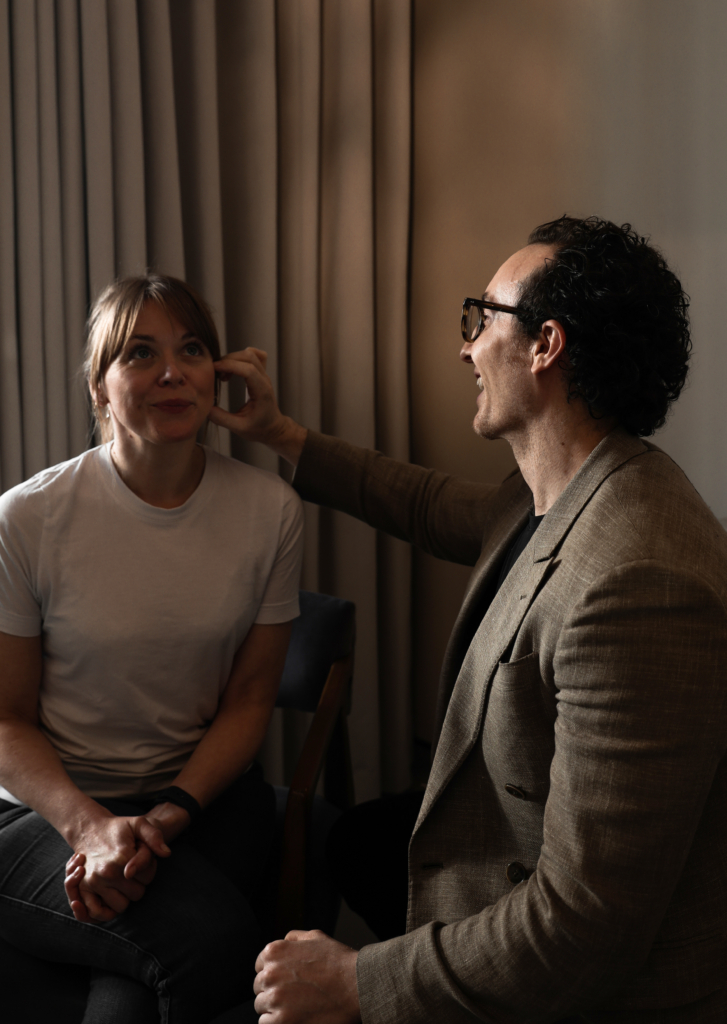
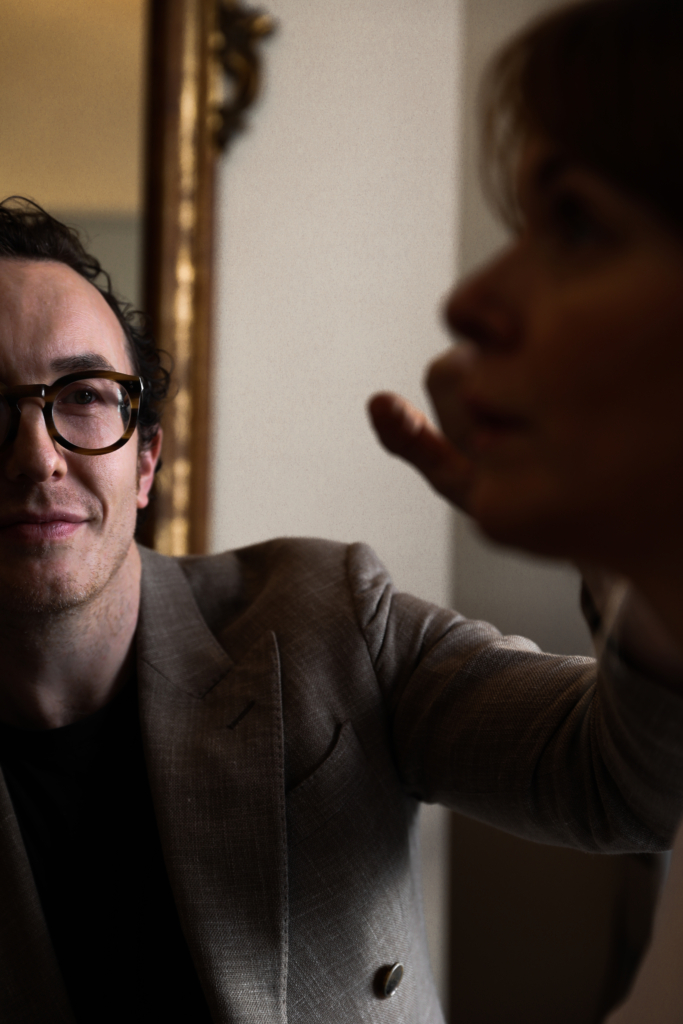
What is Profhilo, and why is it popular for brides looking for youthful, hydrated skin?
Profhilo is an injectable treatment composed of high concentrations of hyaluronic acid, a substance naturally found in the skin. Profhilo is an injectable treatment made from high concentration hyaluronic acid that has two key effects: Short term hydration, and longer term stimulation of collagen and elastin production to thicken the dermis of the skin. It is ideal for anyone looking to improve skin hydration, firmness, and overall skin quality, particularly those who are starting to notice early signs of ageing such as fine lines and wrinkles, and crepey texture. The procedure involves a series of small injections, with a touch discomfort. Downtime is fairly minimal but often patients will experience little bumps at the injection sites, which tend to last for about 12 hours post-treatment. Results begin to appear within a few weeks and can last up to six to nine months. Over the longer term, collagen deposition is increased so there will be some longer term effects. Brides love Profhilo because it’s subtle yet highly effective, providing a youthful glow without looking “overdone.”
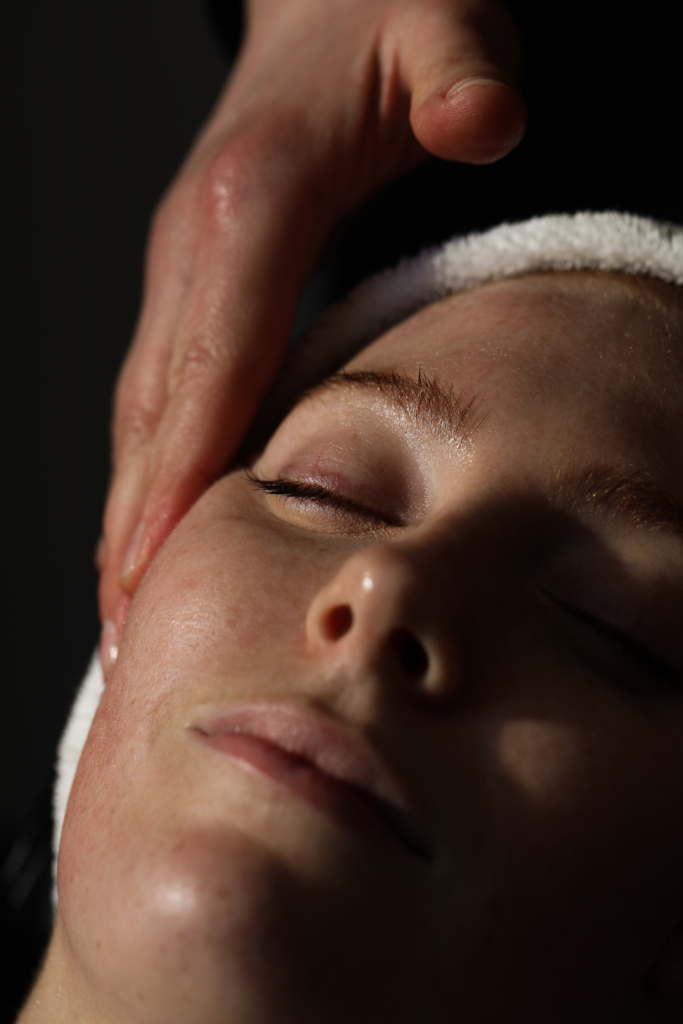
What skincare mistakes should brides avoid in the lead-up to their wedding?
One of the biggest skincare mistakes brides can make is introducing new products or treatments too close to the wedding date, such as strong prescription retinoids, or having lip fillers a few days before their big day! Trying a new skincare product within a few weeks of the wedding can result in unexpected reactions like breakouts, irritation, or redness so should be avoided. Brides should ideally stick to products they know their skin tolerates well. Over-exfoliating with too many harsh acids and toners is another common mistake, as it can strip the skin of its natural oils and lead to dryness, sensitivity, or flaking. Aggressive treatments, such as deep chemical peels or laser resurfacing, should also be avoided close to the wedding because of the potential for redness, peeling, or irritation during the recovery phase.
How can brides address common skin issues like acne or pigmentation before the wedding?
Brides struggling with acne or pigmentation should begin treatments early to give the skin ample time to heal. For acne, medical-grade chemical peels containing salicylic or lactic acid can help reduce breakouts and post-inflammatory hyperpigmentation. Combining peels with IPL or LED light therapy can also be effective in killing acne-causing bacteria and reducing inflammation. Diet is also an important consideration – getting this under control and avoiding inflammatory foods may also help reduce stress-related breakouts. Adaptogenic supplements such as ashwagandha can also be of use in these instances.
For pigmentation issues, IPL or BBL treatments (we use Lumecca IPL) are often the most effective solutions, alongside home skincare such as my yellow peel. IPL works well for superficial pigmentation, such as sun spots as well as redness and thread veins. It works by breaking down pigment in the skin. For deeper pigmentation, fractional treatments such as microneedling and deeper lasers can resurface the skin and promote the healing to create even-toned skin, although the latter may not be suitable for darker skin types or in patients with melasma. Both types of treatments require multiple sessions and should be started at least six months before the wedding for the best results.
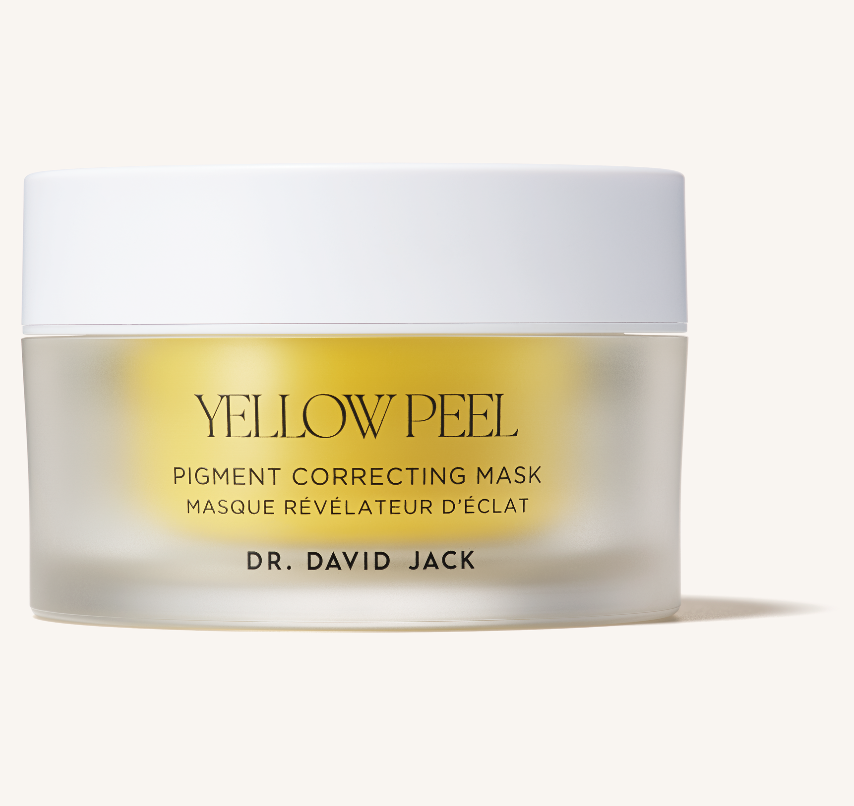
Can you recommend an at-home skincare routine for brides to follow in between professional treatments?
In between professional treatments, it’s very important to maintain a consistent, simple at-home skincare routine to ensure their skin stays healthy and glowing. I’d say this is as important as doing a regime of treatments. Start with a cleanser to remove debris without stripping the skin of moisture, as well as to acidify the pH of the skin. Follow with a vitamin C serum (e.g. Good Morning!), which helps to brighten the skin, minimise unevenness and protect the skin from environmental damage. During the day, finish with a broad-spectrum SPF 50+ moisturise (such as my All Day Long) to protect against UV damage and hydrate the skin. Finally, a retinoid night cream is an important final step to the day to ensure skin health is optimal as it repairs overnight. A once weekly exfoliation can also help to brighten the skin. Simplicity and consistency is key to results that can be maintained over the longer term!

For brides who are hesitant about “tweakments,” what are the most natural-looking options?
For patients who are nervous about looking ‘overdone’, Profhilo is one of my favourite options as it enhances hydration and elasticity without altering facial features (although it’s made from hyaluronic acid, the molecules are not ‘cross linked’ so it doesn’t ‘fill’). Another option is polynucleotides (the ‘salmon sperm’ facial), which is similar to profhiloin some ways (it is a ‘biostimulator’ that can boost collagen and elastin production, as well as increasing hydration in the skin), without any risk of looking filled or frozen. Microneedling or Morpheus8 (microneedling+Radiofrequency) with exosomes is another good option. This involves creating tiny micro-injuries in the skin to stimulate collagen production, then using stem-celll derived exosomes to enhance collagen production. This treatment improves skin texture, tightens pores, and can reduce fine lines with minimal downtime. Additionally, light Botox injections can be used strategically to soften expression lines and rebalance the face without freezing facial movements, resulting in a refreshed but natural look.

What post-wedding skincare tips do you recommend for brides to maintain their glow after the big day?
After the wedding, it’s important to maintain the good habits established in the lead-up to the big day. Continue using your simple but scientifically-based skincare routine with SPF daily to protect and maintain the skin over the longer term. You may also want to consider maintenance treatments, such as facials or lasers, to keep the skin plump and fresh. Treatments like Profhilo, microneedling and IPL can also be done every few months to maintain the glow and elasticity achieved before the wedding, as well as keeping hyperpigmentation at bay.
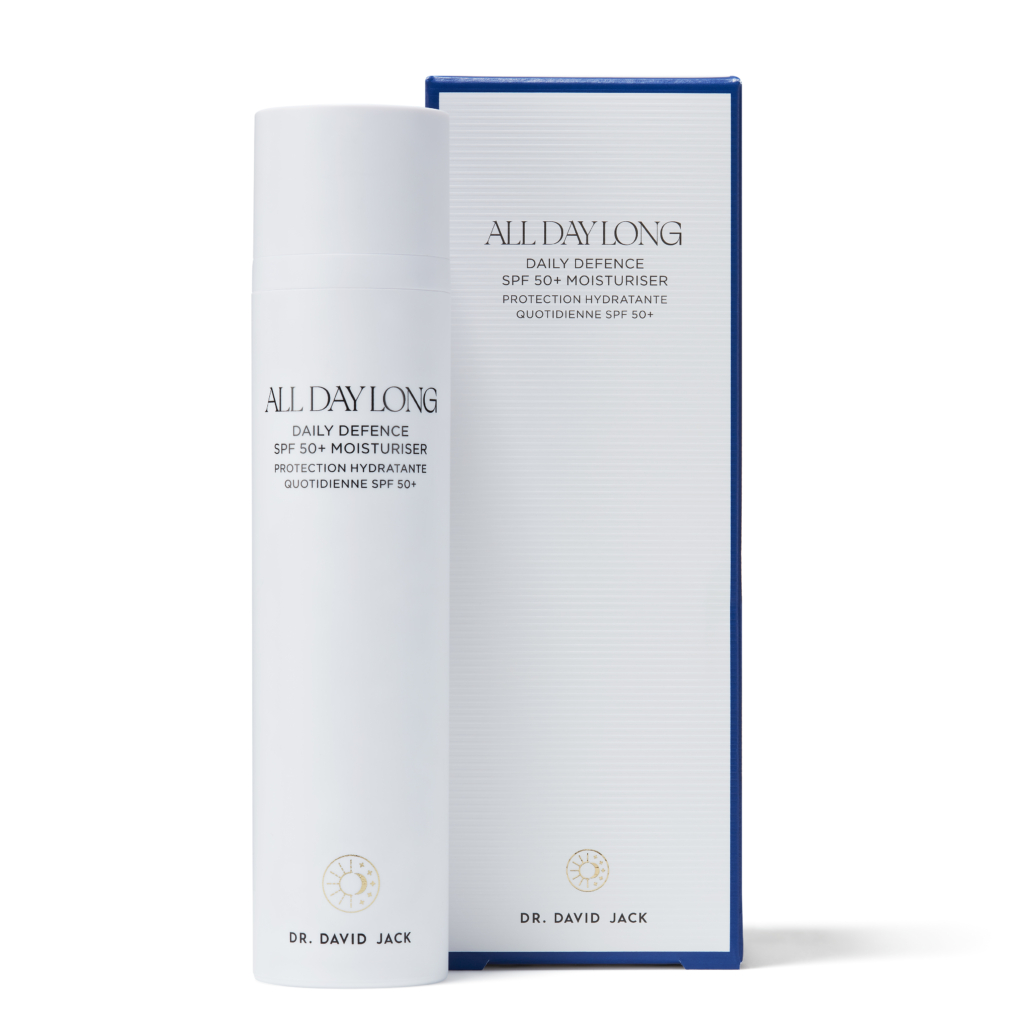
Visit: drdavidjack.com
NEXT READ: Must-Have Winter Wedding Season Scents


